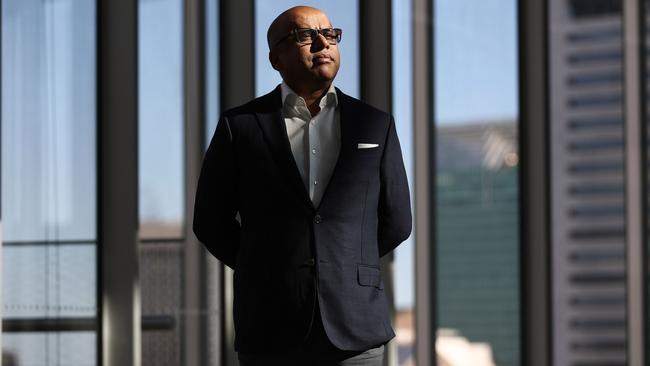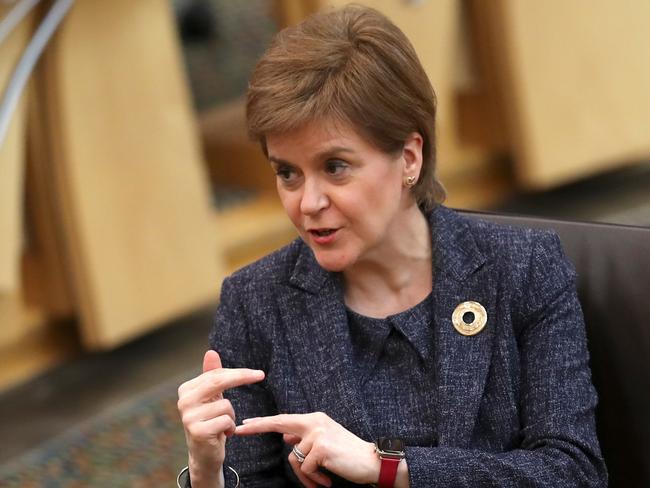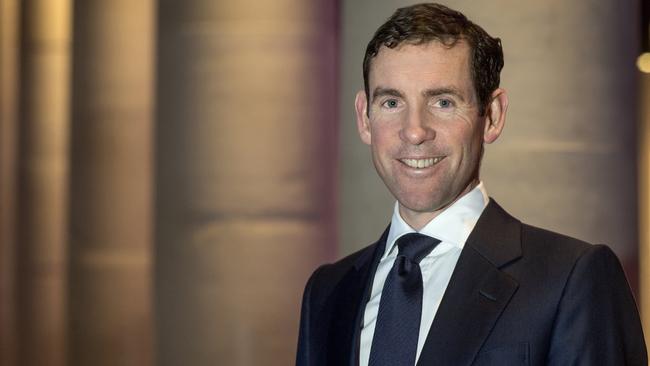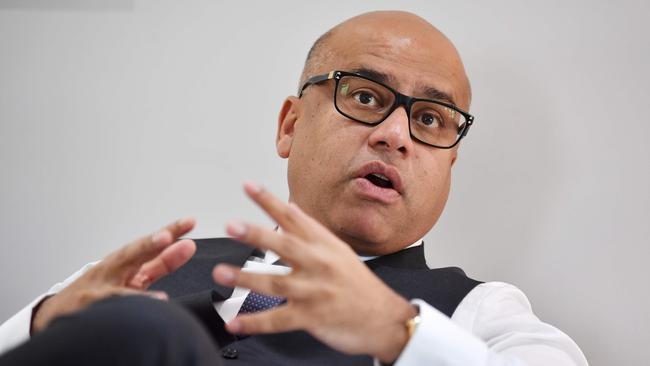Every man for himself as Sanjeev Gupta’s GFC is on the brink, Greensill falls apart
The steel tycoon’s tight relationship with the supply chain finance firm turns toxic. One is about to go down, the other is in peril.

Managers at one of Sanjeev Gupta’s UK steel businesses held a discreet meeting last month. The subject had serious implications for them personally as well as the hundreds of staff they employ: were they trading while insolvent?
Under UK company law, the directors of a business can be held personally liable for its debts if it continues trading when they know it is insolvent.
Bosses at the steel company, who decided the business was still viable for now, had every right to be worried — and even more so after the events of last week. Their business, which we are not naming, has had a hand-to-mouth existence since being acquired as part of the tycoon’s dash for growth, under the umbrella of his Gupta Family Group Alliance. However, with suppliers demanding cash upfront, it has not been able to manufacture for weeks, and staff have been told to prioritise customers who are willing to pay cash in advance.

The company may not be able to hold out for much longer. Last week, Greensill Capital, the finance firm that has fuelled Gupta’s rise and counts former British prime minister David Cameron as an adviser, was tipped into a death spiral when one of its main backers, Credit Suisse, suspended $US10bn ($13.6bn) of investment funds.
Greensill, founded by Lex Greensill, an Australian banker from farming stock, had used the Credit Suisse money to fund its supply chain finance deals, which provided huge sums to Gupta’s empire. The London-based firm is about to be put into administration, with private equity giant Apollo poised to buy the carcass.
Gupta, who has a $5.4m mansion in Monmouthshire, south Wales, and a private jet, has gone to ground in Dubai. He sent an email to staff urging them to do their best and carry on, and is scrabbling to raise money elsewhere, but with the flow of funds from Greensill frozen, his steel businesses could soon be further starved of cash. Gupta has stopped making payments to Greensill, a bill that by Friday had swollen to almost $900m in just five days.
What happens next could have huge repercussions — not just for Gupta’s 35,000 staff. It also matters hugely for politicians who helped fuel his ascent — such as Cameron, Nicola Sturgeon, Scotland’s first Minister, and Carwyn Jones, former first minister of Wales — and the Westminster government, which is desperate to avoid huge job losses.
Greensill’s collapse last week was swift and brutal. It was triggered by an insurer, Tokio Marine, withdrawing cover from the firm, which spooked Credit Suisse. Germany’s financial watchdog banned Greensill’s bank from taking deposits and filed a criminal complaint alleging balance-sheet manipulation, which Greensill denies. The British Business Bank stripped the firm of a guarantee it had given on loans to Gupta. Then the Bank of England’s Prudential Regulation Authority forced Gupta’s bank, Wyelands, to hand back deposits to savers, thus starving GFG of another source of cash.

The relationship between Greensill and the Indian-born magnate has been one of co-dependency. Gupta, 49, is said to have warned that if things ever went wrong for him, it would mean “mutually assured destruction” for Greensill. At heart, it is a story of greed, financial alchemy, industrial decay and politics.
Greensill specialised in a form of supply chain finance called invoice discounting, once viewed as a mundane way of advancing cash to a supplier, rather than making it wait 30 or more days for payment. The 44-year-old founder, who was appointed CBE for services to the economy, used supply chain finance to raise cash from Credit Suisse and others, and in a few years, helped to transform Gupta from an unknown commodities trader into Europe’s fourth-biggest steelmaker.
Greensill enabled the tycoon to snap up distressed aluminium and mining businesses, too, from Whyalla in Australia to Newport in Wales. Established players such as Tata, Arcelor Mittal and Rio Tinto wanted rid of tired assets. In the fast-talking, Cambridge-educated Gupta, they found a convenient buyer. Some were willing to stuff their dead-end businesses with cash and stock as a dowry.
Crucially, businesses were acquired in areas where politicians were desperate to save jobs and prepared to lubricate the deals with state subsidies — the Scottish Highlands, south Wales, Romania.
Gupta persuaded Sturgeon to give him a government guarantee tied to a hydro-electric power station and aluminium smelter near Fort William. Using that 25-year guarantee, which committed the Scottish government to buying the plant’s electricity if the smelter shut down, Greensill issued about $1bn of top-rated bonds in 2017. These were sold on to the Swiss fund manager GAM and M&G, then the Prudential’s fund management division.
In return, Gupta said he would save 170 jobs at the smelter and create 2000 more at a separate aluminium-wheel factory. The factory remains unbuilt.

Those who know Gupta say he was desperate to become part of the establishment. He shared a stage with Australia’s then prime minister, Malcolm Turnbull, met French president Emmanuel Macron, and attended the British Conservatives’ Black and White Ball. Three years ago, Prince Charles was guest of honour at the reopening of an electric arc furnace in Rotherham, part of a clutch of assets bought from Tata. Yet Gupta has never been able to escape his reputation of being a wheeler-dealer. Former business secretary Greg Clark is said to have avoided being photographed with him.
In 2017, GAM bought about $1.1bn of bonds — packaged by Greensill — said to be backed by a fleet of diesel generators. He planned to run the generators on biodiesel derived from waste cooking oil, and claim green subsidies. In the end, he could not source the right fuel, and when GAM’s shares crashed because of its link to the failed subsidy wheeze, Gupta was forced to buy back the bonds.
Promised investment around the globe has never materialised. Several of his companies are late filing accounts. Simec Power 1 and Simec Power 2 have not filed for almost three years and have been threatened with being struck off. Several subsidiaries have repeatedly changed their accounting periods, to delay when they have to file accounts.
It is Gupta’s willingness to push the boundaries on financing, from invoice discounting through Greensill to using his own bank, Wyelands, that has brought GFG and Greensill to the brink.

The finance firm turned invoices from Gupta’s businesses into hard cash. When a customer bought from his Liberty Steel, the invoice was forwarded to Greensill. That IOU was classed as a receivable with a value close to cash. The finance firm assumed responsibility for the debt and handed the cash to Liberty — instead of making the steelmaker wait for anything from 30 to 180 days, as would normally be the case for payment from buyers.
The firm’s exposure to Gupta is huge — for the Arcelor steelworks, it lent him about $3.4bn. Greensill also used a particularly exotic form of financing, extending cash to Liberty based on “future receivables” up to three years ahead — so the sale of steel that was still iron ore and coal in the ground. In return, Greensill took security over many of Gupta’s assets.
Some customers had close links to Liberty and were known internally as “friends of Sanjeev”. The Sunday Times has reported how Greensill lent big sums to Liberty against invoices from companies that owed money to Gupta’s steel businesses but had directors with close links to his firms, and in some cases had shared the same office address.
All that is now unravelling. Bafin, the German regulator, said that during an audit of Greensill’s Bremen-based bank, it was unable to find the source of receivables bought from Gupta’s GFG Alliance.
Relations between Gupta and Greensill have broken down — cash from customers is flowing into his business but is not being passed to the firm. That leaves Greensill’s owners, and administrators at Grant Thornton, with a dilemma. Do they call on the firm’s security over Gupta’s businesses, and tip them over with the loss of thousands of jobs?
“We are pressing the company for answers,” said the steel union Community. GFG said its operations are “running as normal and our core businesses continue to benefit from strong market conditions generating robust sales and cash flows”. “We are making progress in our discussions with financial institutions that can help diversify our funding.”
The Sunday Times







To join the conversation, please log in. Don't have an account? Register
Join the conversation, you are commenting as Logout